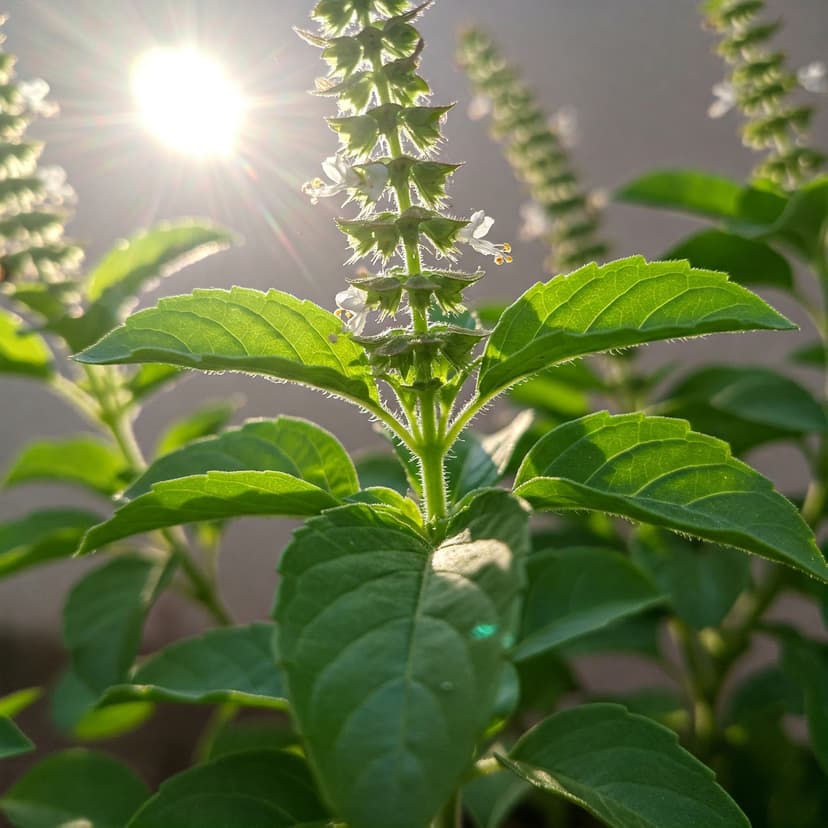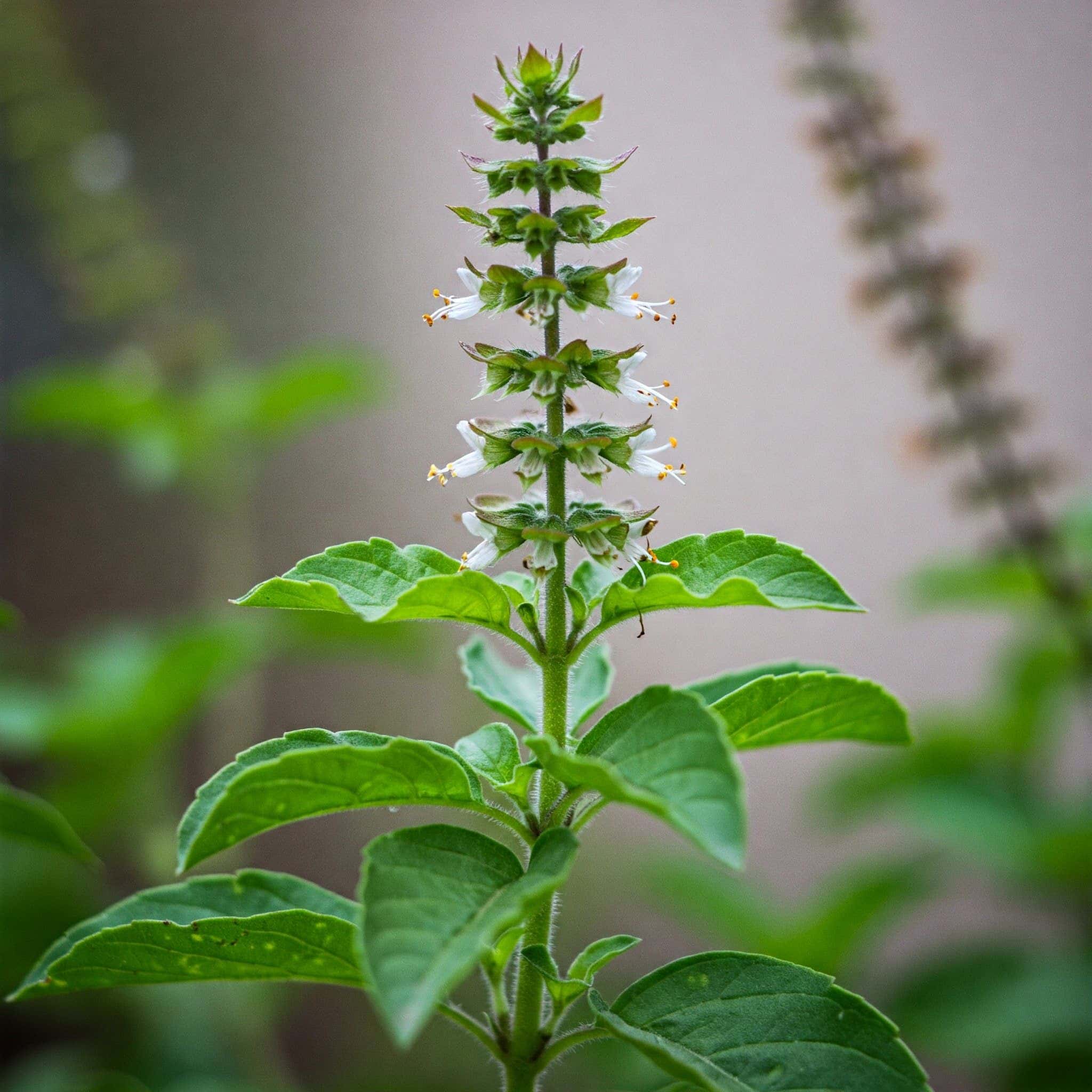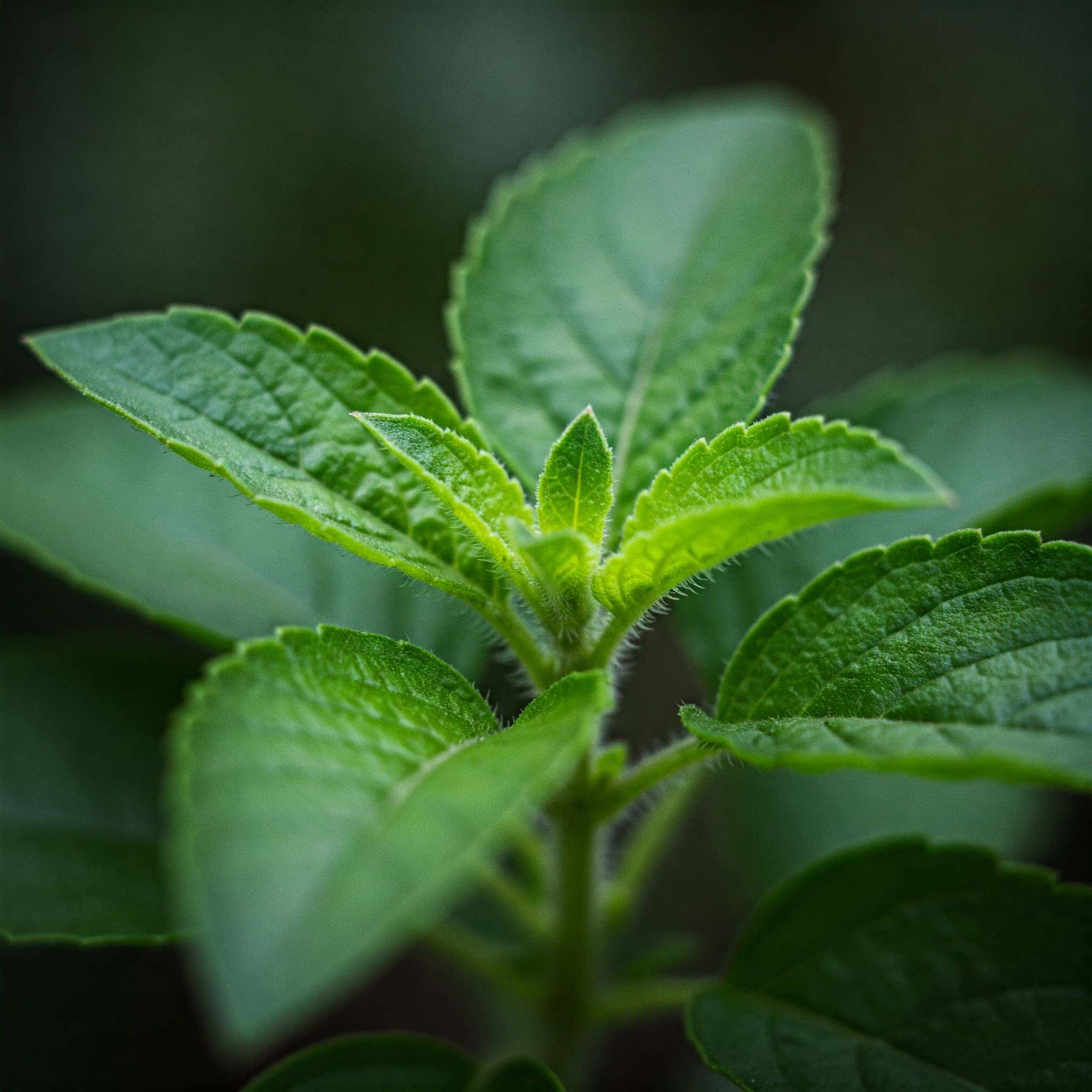


Common Name
Tulsi,
Holy basil,
Sacred Basil,
Thulasi,
Tulasi
Family
Lamiaceae (mint family)
Parts Used
Leaves, flowers, seeds, and stems (leaves are most commonly used in extracts)
Native To
Native to India and Southeast Asia; also cultivated in tropical and subtropical regions around the world.
Historical and Traditional Uses:
Ayurveda Known as the "Queen of Herbs" and considered a sacred plant. Tulsi has been used for longevity, immune enhancement, and stress reduction. Spiritual Practices Revered in Hindu culture and used in rituals for its purifying properties. Traditional Medicine Widely utilized for respiratory conditions, skin diseases, fever, and infections.
Chemical Composition:
- Phenolic Compounds: Rosmarinic acid, caffeic acid
- Essential Oils: Eugenol, methyl eugenol, beta-caryophyllene
- Flavonoids: Apigenin, luteolin
- Terpenoids: Ursolic acid, oleanolic acid
- Other Active Compounds: Saponins, tannins, and alkaloids
Pharmacological Properties:
- Adaptogenic: Reduces physical, chemical, and emotional stress.
- Immunomodulatory: Enhances immune response and resilience against infections.
- Antimicrobial: Effective against bacteria, fungi, and viruses.
- Anti-inflammatory: Reduces systemic inflammation and alleviates chronic conditions.
- Antioxidant: Scavenges free radicals and protects cells from oxidative damage.
- Hypoglycemic: Improves insulin sensitivity and regulates blood sugar levels.
- Neuroprotective: Enhances cognitive function and reduces stress-related symptoms.
- Hepatoprotective: Protects liver cells from toxins and supports detoxification.
Evidence-Based Uses and Benefits:
1. Stress Relief and Adaptogenic Benefits:
- Evidence: Shown to reduce cortisol levels, promote mental clarity, and improve mood.
2. Respiratory Health:
- Use: Relieves symptoms of asthma, bronchitis, and colds by reducing inflammation and mucus production.
3. Immune System Support:
- Mechanism: Enhances T-cell activity and improves overall immune function.
- Study Reference: Confirmed through clinical and preclinical research on its immune-enhancing properties.
4. Blood Sugar Regulation:
- Effect: Lowers fasting blood sugar levels and improves insulin sensitivity in diabetics.
5. Skin and Oral Health:
- Use: Effective in treating acne, wounds, and gum infections due to its antimicrobial activity.
- Research Insight: Studies document its efficacy in reducing bacterial growth and healing wounds.
6. Heart Health:
- Mechanism: Reduces cholesterol levels, blood pressure, and supports overall cardiovascular health.
- Study: Tulsi's impact on lipid profiles has been observed in multiple studies.
Counter Indications:
- Pregnancy and breastfeeding (potential uterotonic effects and lack of safety data).
- Hypoglycemia or diabetes (may lower blood sugar excessively).
- Thyroid disorders (may influence thyroid hormone levels).
Side Effects:
- Mild gastrointestinal discomfort (bloating, nausea) in rare cases.
- Allergic reactions such as skin rashes in sensitive individuals.
- Potential drowsiness when combined with sedatives.
Drug Interactions:
- Antidiabetic Medications: May enhance hypoglycemic effects, requiring dose adjustment.
- Anticoagulants: Eugenol content may increase blood-thinning effects of drugs like aspirin or warfarin.
- CNS Depressants: May potentiate the effects of sedative medications.
- Herbs and Adaptogens: Use cautiously with other adaptogens like ashwagandha or rhodiola.
Research and White Papers with Links:
- Anti-inflammatory, gastrointestinal and hepatoprotective:(http://www.ncbi.nlm.nih.gov/pubmed/24266685)
- Biological activities: (http://www.ncbi.nlm.nih.gov/pubmed/17569280)
- anxiety disorders: (http://www.ncbi.nlm.nih.gov/pubmed/19253862)
- immunomodulatory effects of tulsi: (http://www.ncbi.nlm.nih.gov/pubmed/21619917)
Conclusion
Tulsi (Ocimum sanctum) is a time-honored herbal remedy with adaptogenic, immune-enhancing, and anti-inflammatory properties. It's versatility in addressing stress, infections, and chronic conditions has been supported by both traditional use and modern science. Tulsi is easily available in various forms, including teas, tinctures, powders, and extracts. Tulsi remains an integral part of Ayurvedic and modern herbal medicine, celebrated for its holistic health-promoting properties. However, care must be taken with specific medical conditions and medications.



